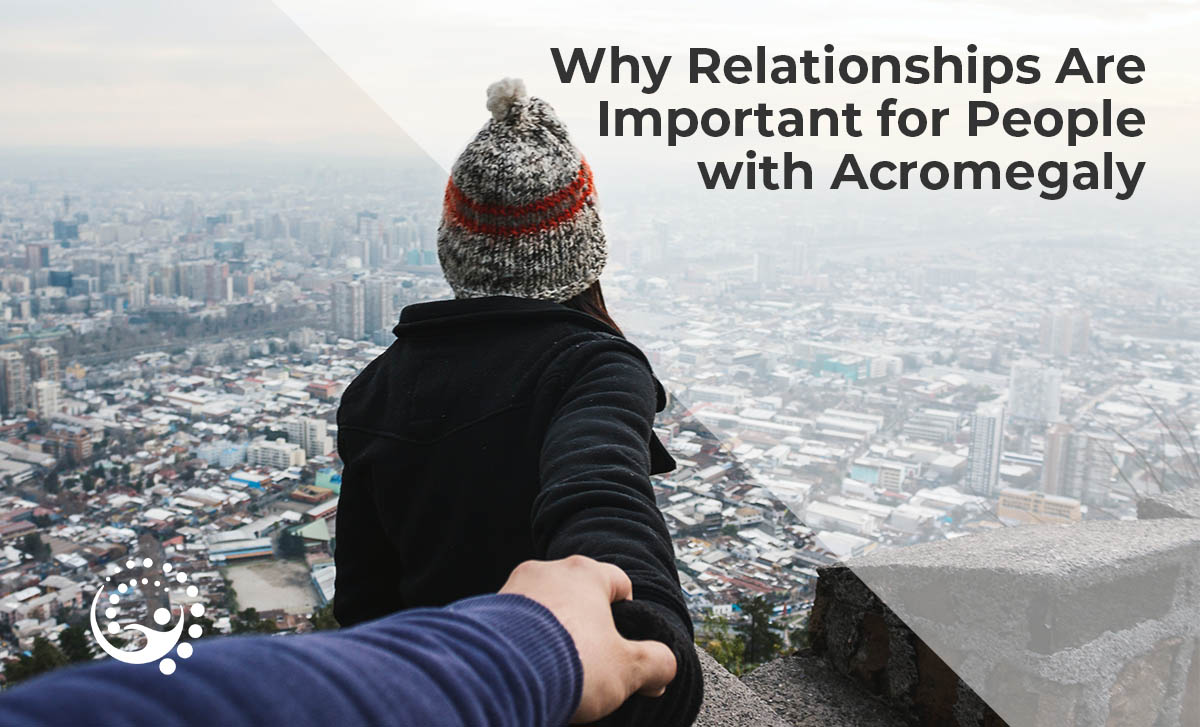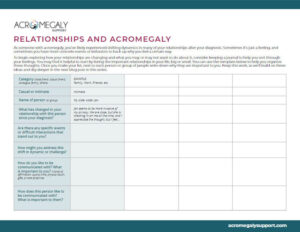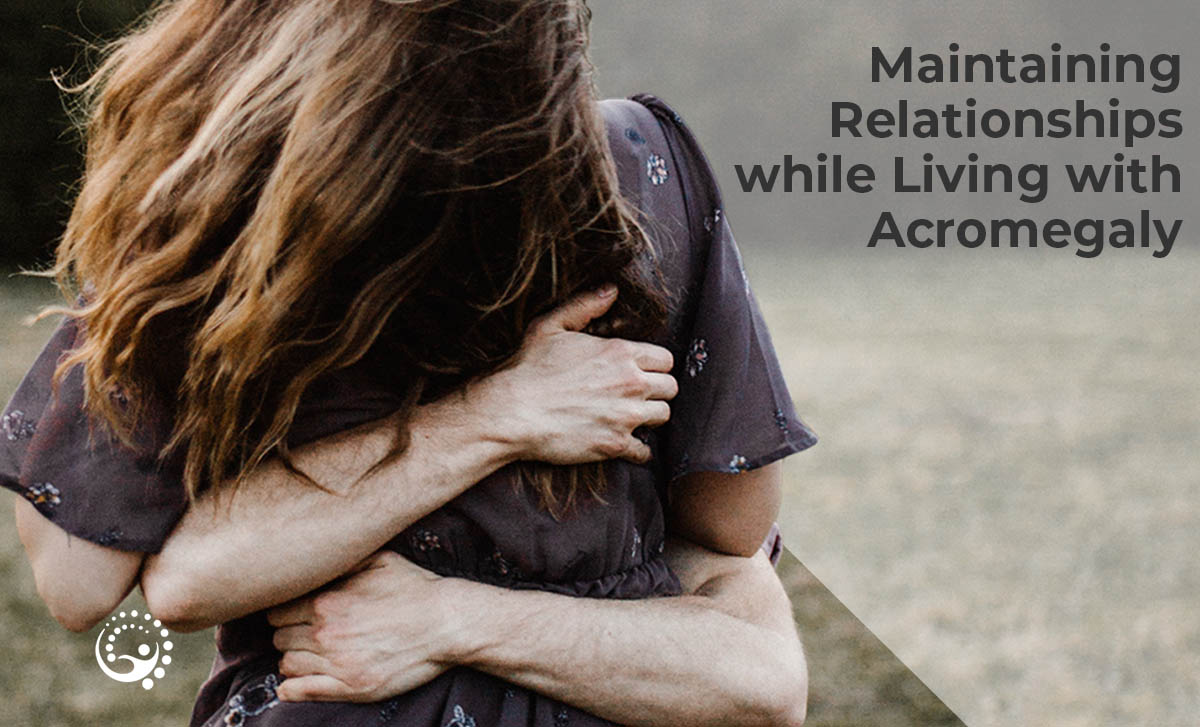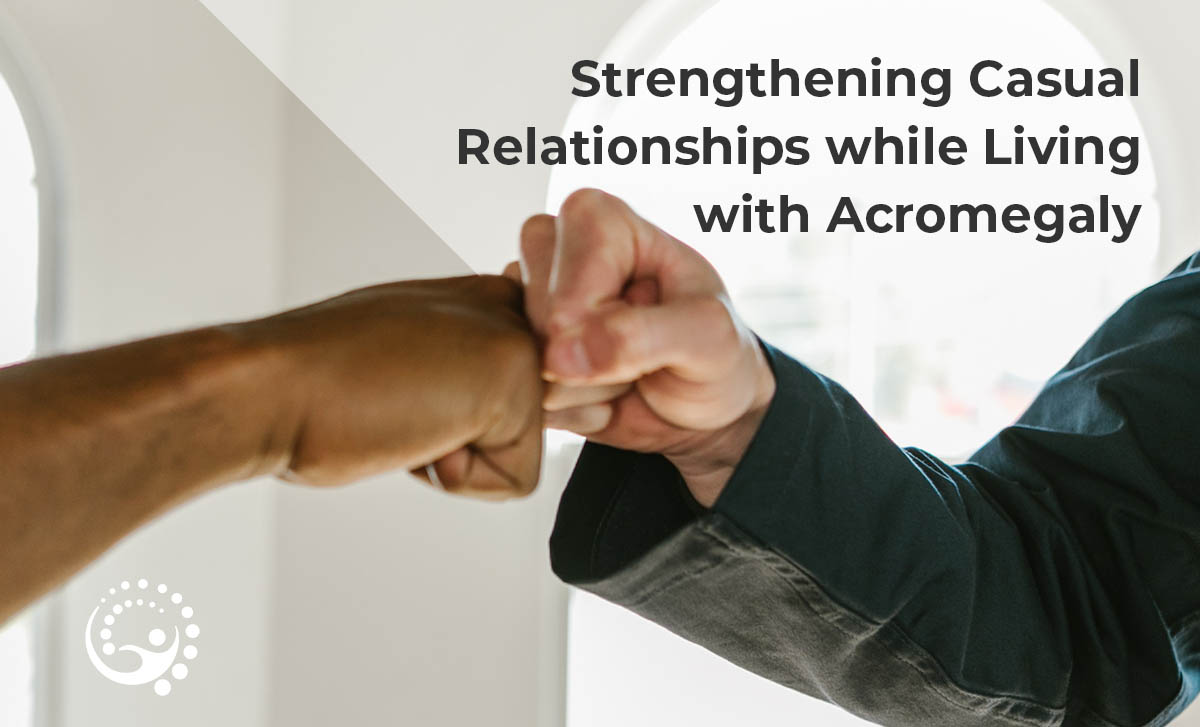Once diagnosed with acromegaly, you may find yourself adjusting to new energy levels, changes in physical appearance, and learning how to balance medical appointments with everything else on your plate. This can dramatically alter relationship dynamics and affect both interpersonal and professional interactions, potentially leading you to feel misunderstood, self-conscious, or uncomfortable. You may even (understandably) want to withdraw from established relationships. After all, acromegaly takes a physical, emotional, and mental toll, leaving little energy to invest in relationships.
Although withdrawing may seem like an appealing solution, the separation necessitated by the COVID-19 pandemic has highlighted the fact that social isolation can lead to depression and negatively affect your health. Research shared by the American Psychological Association states: “social disconnection is at least as harmful to people as well-accepted risk factors as…physical inactivity and smoking up to 15 cigarettes a day.” Individuals living with acromegaly tend to find themselves isolated even without the restrictions of COVID-19, making it much more important to foster intimate connections with others.
For someone with acromegaly, having strong social connections—the relationships with the people around you—can have meaningful effects on your overall wellbeing. For instance, good relationships can help you manage the stress of living with a chronic illness, boost immune responses, and even make you less likely to get depressed. This post will explore why humans are meant to connect with others and why having a diverse social network is important for everyone, especially people with acromegaly.
Humans Are Wired for Connection
Scientists have found that social connections affect people on a biological level: “close family relationships are linked to favorable levels of the stress hormone cortisol, which plays a role in important functions such as glucose metabolism and immune function.”
In addition, bonding with others and forming support systems enable us to do things we may not be able to do on our own. According to Linda Rio, MA, MFT, “Hormonally, we desire to reach out to others, and the reason is that we are not self-sufficient as beings…we can’t do everything. When we pair up as a couple and then as a family, we each provide different skill sets.” In short, we cannot get everything we need from one person. Partners, friends, family, and coworkers can all help form support systems. But are there certain relationships that are most beneficial to someone with acromegaly?
Breaking Down Types of Relationships: Intimate and Casual
Earlier we mentioned how having strong connections can support your overall wellbeing; these connections refer to both close (intimate) and casual relationships. Specifically, according to a 2021 research paper on the cognitive effects of social support, having people that you can count on to provide “supportive listening” leads to greater cognitive health and resilience in the long term. On an emotional level, having strong relationships can help people better manage grief such as the death of a loved one, job loss, or the diagnosis of a chronic disease, for instance.
Let’s look at some examples of the casual and intimate relationships you may have in your life:
Intimate Relationships
- Spouse or partner
- The person you’re dating
- Familial relationships such as children, grandchildren, siblings, parents
- Close friendships (whether people you knew pre-diagnosis or someone you met in an acromegaly support group)
Prioritizing these relationships can provide much-needed emotional support when you have a symptom flare-up or experience anxiety due to all the changes in your life since you received your acromegaly diagnosis.
Casual Relationships
- Acquaintance-type friendships such as neighbors or the barista who remembers your name at your favorite coffee shop
- Work and professional relationships, such as coworkers, boss, or a team you manage
- Social relationships, such as your book club, walking buddy, or friends from volunteering
Although casual interactions may seem insignificant, they remind us that we’re part of a larger community. Plus, they can provide inspiration and connection in a lighter way than intimate relationships.
Having a broad social network can also yield opportunities for more profound personal connections down the line. For example, if you feel comfortable talking about your acromegaly with a coworker, you might discover that they know someone else who has it and can introduce you.
If you want to expand your social network, you can use technology to find and connect with people across the globe who are going through similar experiences. There are acromegaly support groups that regularly meet on Zoom, for instance; you can find them by searching for virtual acromegaly support groups. Many of these types of organizations hold virtual events or conferences you could attend.
Or perhaps you want to find people who have similar interests, whether that’s food, reading, or advocacy. Websites such as Meetup.com have hundreds of groups for every hobby. You can even find people to have virtual happy hours with!
Now that you understand the importance of different relationships in your life, the next post will dive deeper into how your acromegaly diagnosis might affect intimate relationships and how you can approach those challenges. How have your relationships changed since your acromegaly diagnosis? What behaviors have you noticed in others? Download the “Relationships and Acromegaly” exercise template to help you reflect.
Was this information helpful to you? If so, please share with others and subscribe to receive the latest content.





